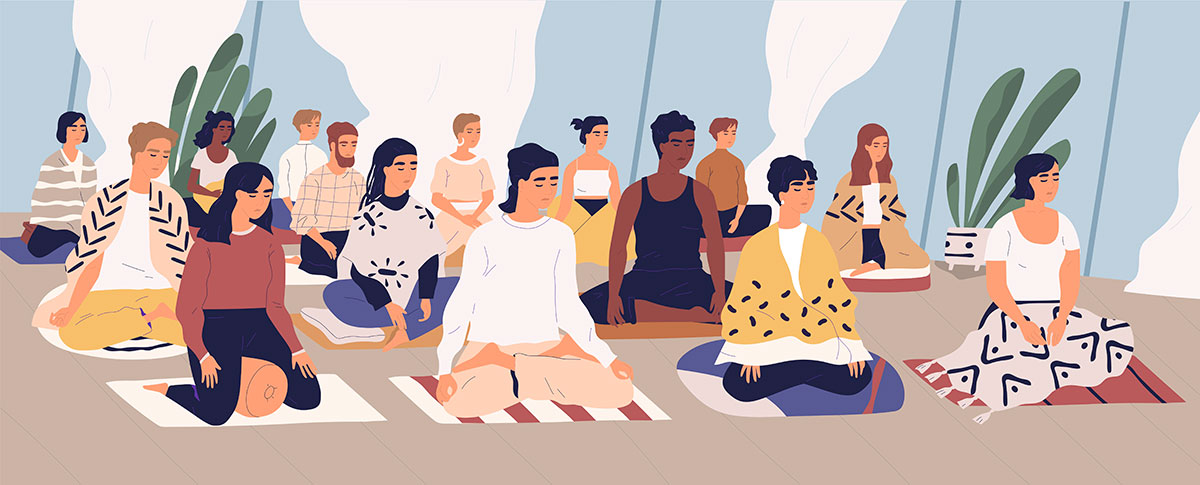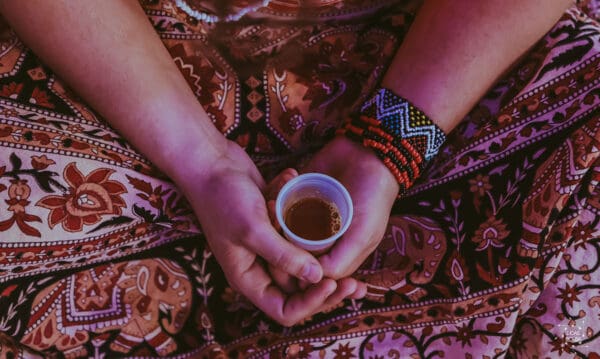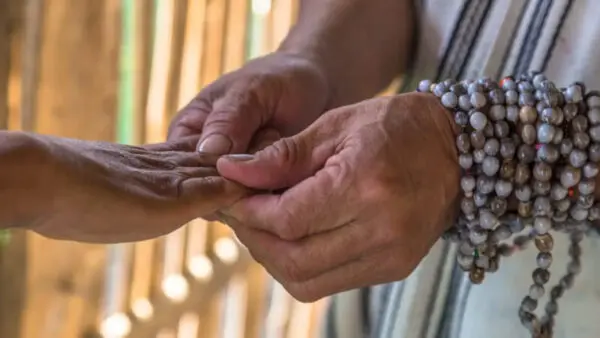Ayahuasca is a brewed tea made from the Banisteriopsis Caapi vine and leaves from the Psychotria Viridis plant. It has been used in sacred ceremonies by the indigenous people of the Amazon and certain countries in South America for centuries. The tradition has continued and has become increasingly more popular among westerners in recent years.
People who participate in the ayahuasca ceremony most often report life-altering positive results that last long after the trip has ended, with impacts that lead them to make drastic changes in their lives motivated by deeply meaningful personal insights.
Interested in learning more about ayahuasca and how you can participate in the ceremony? In this article, we’ll cover some of the most common questions about ayahuasca healing retreats and discuss important factors to consider before committing to a journey.
What is an ayahuasca healing retreat?
As more people become aware of ayahuasca ceremonies and the medicine’s powerful potential to heal, there has been rising curiosity about where and how to participate in one. The process of preparing, the ceremony itself, and a period for integration and recovery take time, so opportunities to experience a ceremony are usually offered as an immersive retreat.
An ayahuasca retreat is a place that offers ayahuasca ceremonies for people seeking to heal from some kind of difficult emotional, personal, or mental crisis, as well as certain kinds of health conditions. Journeyers come to ayahuasca healing retreat centers with the hope of moving forward from persistent emotional and physical afflictions and finding deeper meaning or guidance for their paths.
People are fascinated by the mystical experience ayahuasca evokes, and drawn to the transformative, personal journey in sacred ceremony. An experience with ayahuasca can be challenging but through the sometimes difficult physical and psychological effects, the journeyer emerges having made progress toward healing deep emotional wounds such as trauma and heartbreak. People have reported recovery from conditions like depression or substance dependency and liberation from oppressive grief over a devastating loss.
Immersion is an important part of the process. Ayahuasca healing retreats are usually residential and include a period of preparation, where the journeyer is emotionally and physically prepared for the ceremony and spends time establishing mindset and intention. After the ceremony (or ceremonies), integration allows time, space, and guidance in a period of reflection and processing of one’s experience.
Ceremonies are led by healers that may be referred to as Ayahuasquero, Taita, Curandero, Onaya, or Maestro. Religions and organizations outside South America that have incorporated ayahuasca ceremonies into their spiritual practice may refer to the leader by a different name, particularly if the medicine has a different name or if there are no cultural ties to the Amazon region.
As ayahuasca has surged in popularity recently, more ayahuasca retreat centers have become available to meet the demands of ayahuasca tourism. Some of them are organizations or churches with cultural ties to sacred ceremonies, while others are operated by indigenous people who have preserved and upheld the legacy, ancient beliefs, and traditions through the modern age.
Ayahuasca retreats in South America
There has been a significant increase in the number of people traveling to South America in search of authentic ayahuasca healing retreats led by indigenous shamans. Those who are seeking an authentic experience deeply rooted in the culture, tradition, and spirituality surrounding ayahuasca will benefit from making the long journey.
There is no better place: staff members, ceremony attendants, and healers are either members of the indigenous community or descended from it. They have immense respect for the medicine and transformational nature of the ayahuasca ceremony. At ethical and reputable retreat centers, journeyers can expect to be supported with empathy and expertise in managing the sometimes challenging physical and psychological effects that are considered vital to the process of healing.
Meals are frequently included in the price of a retreat and adhere to the ‘ayahuasca diet,’ which excludes pork, salt, cheese, pickled and fermented foods, alcohol, sugar, and spicy foods for about a week before and after taking the medicine to avoid negative interactions. Lodging can range from humble to luxurious depending on the retreat center. Bunk beds and tents are common, but some first-timers may prefer a more comfortable and private space this potentially challenging time. Some centers offer such accommodations for an additional cost.
Reputable ayahuasca retreat centers practice sacred reciprocity locally and within the region. Many provide employment to indigenous people, participate in and contribute to conservation efforts in the Amazon rainforest, have ethical plant harvesting practices, actively invest in the indigenous community, or preserve the integrity of culture and tradition amidst the unfortunate instances of cultural appropriation.
Are ayahuasca ceremonies in the US legitimate?
There are very few healing retreats available in the United States because ayahuasca is not legal without a religious exemption granted by the federal government. The only legal way to obtain, consume, or participate in an ayahuasca ceremony in the U.S. is through a registered church that is allowed to use the medicine.
Religions like Santo Daime and União do Vegetal originated in the Amazonian region of Brazil and operate as churches in the United States. Santo Daime embraces traditional South American shamanism and the ideology of multiple Christian denominations, with animism as a central pillar (the belief that all things have a spirit or soul and are a part of God). The forces of nature are observed with the utmost reverence. These ayahuasca ceremonies are protected by the religious exemption for legitimate use.
The Oklevueha Native American Church (ONAC) offers ayahuasca retreats and ceremonies in the United States, but some have brought forth concerns about cultural appropriation and the legitimacy of this organization for several reasons. ONAC’s name is misleading; it was not founded by indigenous people, and can easily be confused with the National Council of Native American Churches (NCNAC), a legitimate indigenous organization that has a religious exemption for the use of peyote as a spiritual sacrament, not ayahuasca. NCNAC has made public statements strongly denouncing ONAC for exploiting their spiritual beliefs to subvert the law.
There are legitimate underground ayahuasca ceremonies in the US, however, these operate outside the confines of the law. Several US cities have decriminalized naturally occurring psychedelic substances, including ayahuasca. If you’ve been invited to a ceremony, do your research to find out about the training and experience of the facilitator, whether or not participants are sufficiently screened medically and psychologically before participating, the sustainability <internal link> of the vine being used in the brew, and the laws of the area where the ceremony will take place.







